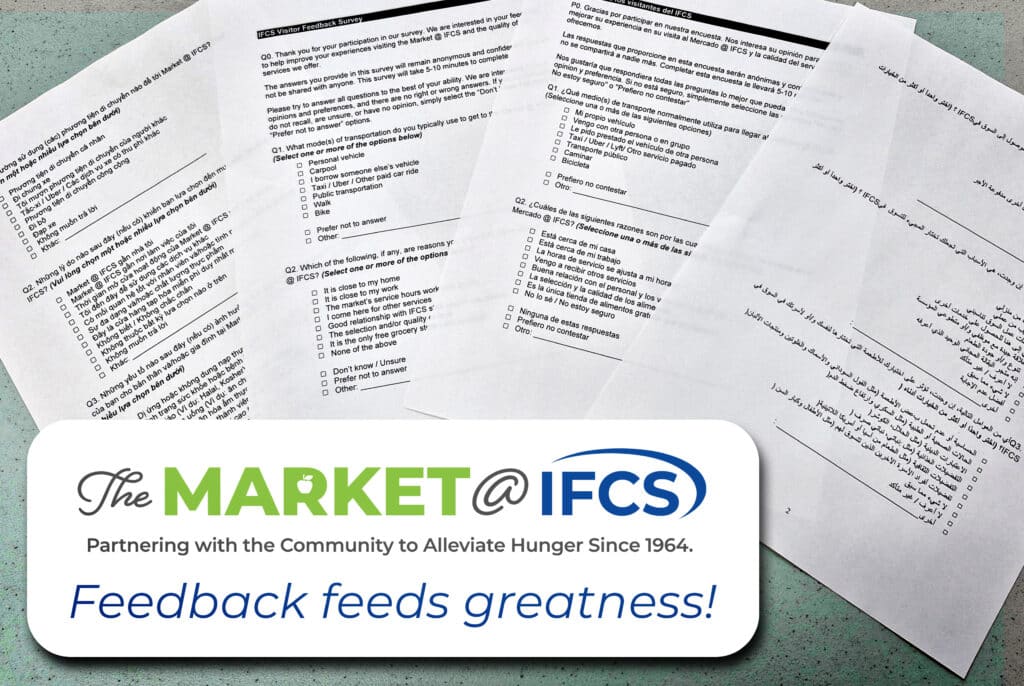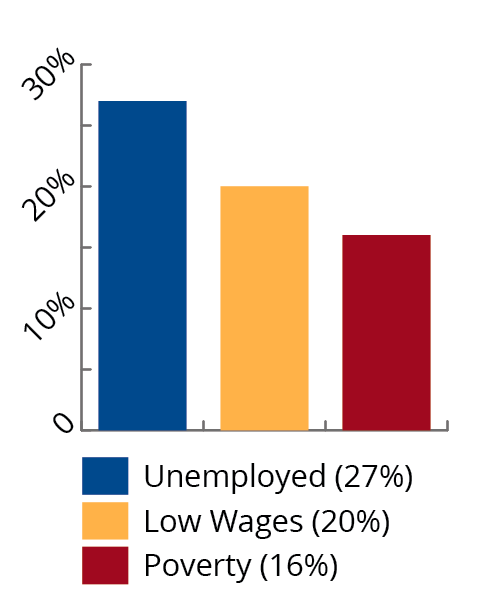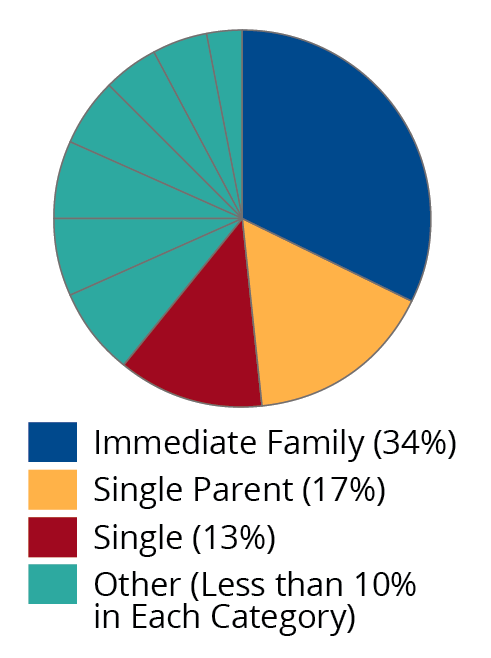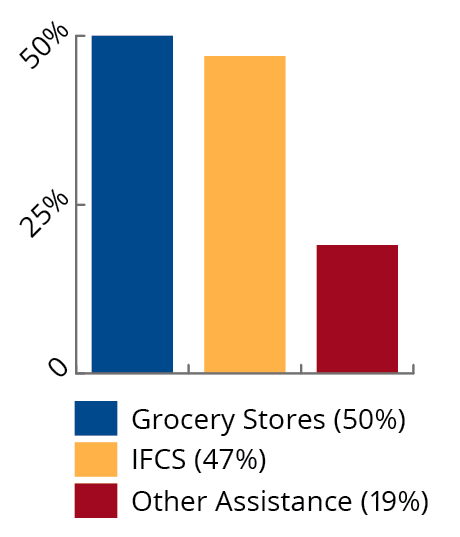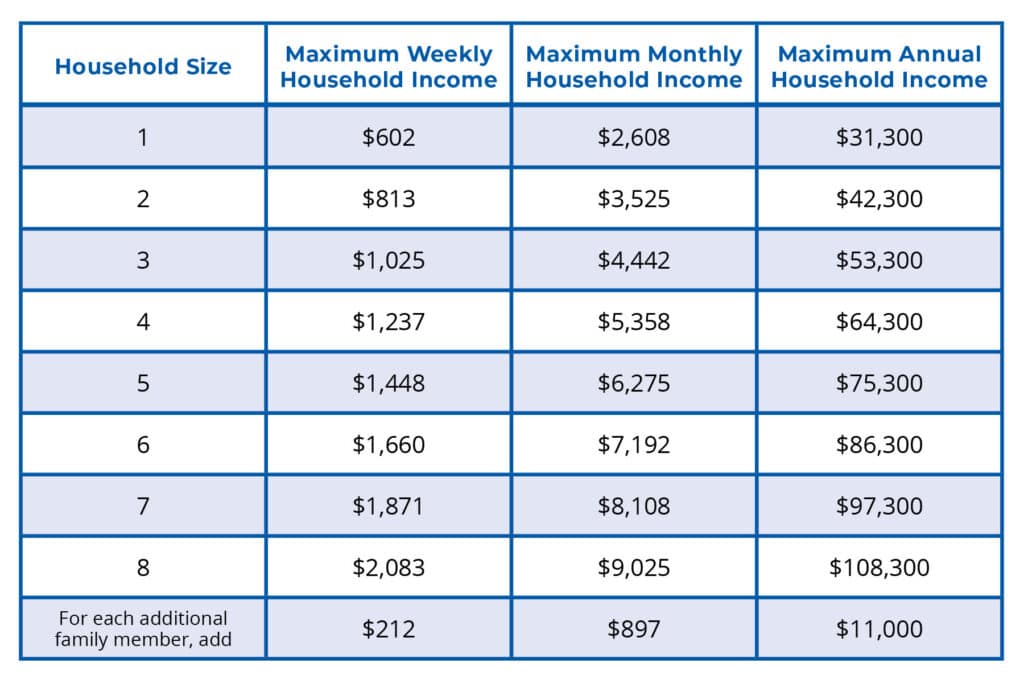At Integrated Family Community Services (IFCS), we strive to adapt to current needs. This nimbleness requires our willingness to change, and meaningful change is only possible by listening to the people we serve. In April 2025, we launched an anonymous visitor feedback survey to better understand the experiences of those who rely on the Market @ IFCS for food assistance. The insights we gained are already shaping how we move forward, and in this blog entry, we’re sharing it all with you, our partners in alleviating hunger.
Why and How We Conducted a Survey
The primary goal of the survey was to gather honest feedback from Market visitors: what brought them to our doors, how satisfied are they with the food they receive, and what improvements would they like to see? “This information is crucial as it helps us understand the specific needs of our participants, such as cultural preferences, nutritional requirements, and accessibility issues,” says Miriam Noriega Mendez, our Program Director. “By prioritizing these needs when purchasing food for the Market, we can ensure a more inclusive and satisfactory experience.”
Grace Maley reached out to IFCS in December of 2024, looking to connect with – and give back to – the community as a volunteer. Grace works as a senior analyst at Analysis Group and had recently transferred to their Denver office. She offered her data analysis skills to Tara Magaña, IFCS’ Volunteer Coordinator. “Grace initially started with analyzing Market traffic patterns and demographic information,” says Tara. “When she told her supervisor about her volunteer work, the company offered to work with IFCS on a pro bono basis, allowing Grace to utilize company resources and recruit a team to work on survey creation, translation, and analysis.” Grace brought 3 colleagues on board, enlisting the help of analysts Rachel Brown, Joe Bourdage, and Paul Hinton. Additional colleagues were recruited short term to translate surveys into Arabic, Russian, Spanish, and Vietnamese.
From April 1 to April 30, 2025, we invited Market participants to complete a 17-question survey, available in 5 different languages. The survey was offered in paper and digital formats—via IFCS devices, QR codes, or at home—with volunteer support available. To encourage participation, respondents were entered into a $50 gift card drawing. A total of 529 participants completed the survey, with responses in English, Spanish, Vietnamese, and Russian. “I still remember the eyes light up of the person when I said the survey was in Russian,” recalls Miriam.
What We Learned From Our Participants
Once Grace’s Analysis Group team had completed the work of compiling responses and analyzing results, they presented outcomes and feedback from IFCS participants. Overall, our team was touched by the honesty, gratitude, and insight shared by our Market shoppers. Several clear themes emerged from the survey, providing us an in-depth look at the “bigger picture” realities that aren’t always clear in our day-to-day work of managing Market operations.
The survey collected data on participants’ race, ethnicity, household composition, and reasons for shopping at the Market. Most respondents (69%) identify as Hispanic or Latino, with 35% identifying as white and smaller percentages identifying as Black or African American or other racial groups. About one-third of households consist of nuclear families, with an average household size of four. When asked about their reasons for visiting the Market, respondents cited economic hardship, unemployment, low wages, housing instability, and health-related expenses. Many reported struggling to afford food due to limited income, insufficient assistance, or unexpected financial burdens.
Please note that the graphics in this post are highlighting the majorities for the sake of simplicity, so totals may be less than 100%; full data results may be viewed on the 2025 IFCS Survey Takeaways. Additionally, it’s helpful to note that some survey questions allowed participants to select multiple options, which is why those responses total more than 100%.
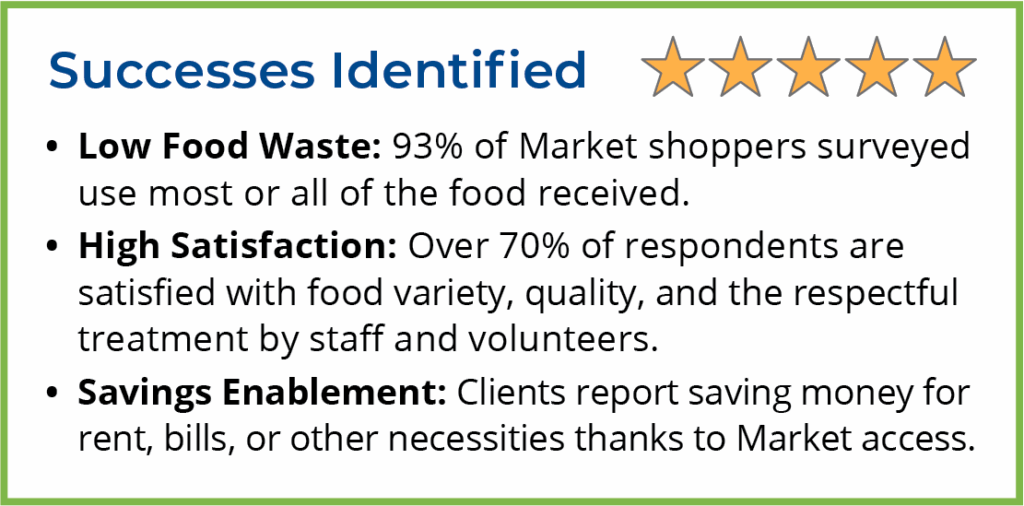 Where the Market is Succeeding
Where the Market is Succeeding
Survey results show the Market @ IFCS is doing well in areas of low food waste, high participant satisfaction, and savings enablement. Of those surveyed, 93% of respondents use all or most of the food they receive. Participants especially praised the staff and volunteers, food variety and quality, and convenient hours. Open-ended responses further highlight positive experiences, including appreciation for supportive staff and volunteers, and the Market’s impact during difficult times. The Market is also supporting long-term stability by helping participants save money. Some respondents shared that the savings enabled by the Market are allowing them to work toward important goals, such as securing housing. Miriam feels that a particularly relevant outcome of the survey is learning that the Market @ IFCS is an essential resource: “Individuals who shop at IFCS frequently do not have wages or assistance sufficient to cover expenses, and often face challenges due to adverse life experiences, including recent immigration, unemployment, medical conditions, old age, or homelessness” (exerpt from 2025 IFCS Survey Takeaways, page 1).
“Through the survey, we discovered new information about the population we serve that we didn’t know before,” says Miriam. For example, “food insecurity is higher in larger household sizes with low income.” Depicting this contrast, the average household size for shoppers at the Market @ IFCS is 3.5 – 4, while the counties define average household size at 2.5.
Although the Market @ IFCS was originally intended as a supplemental food source, 47% of respondents identified IFCS as their most important source of food. “This means we are essential to households’ access to food and a budget to pay for their livelihood expenses,” says Miriam.
Participants expressed strong satisfaction with the food, citing both its quality and variety, and reported being able to use all or most of what they receive. According to Miriam, “This shows that the market provides culturally relevant food and a variety of food that they can consume.”
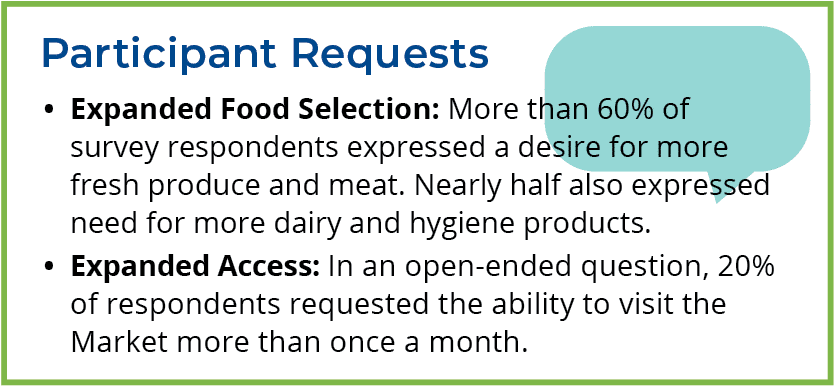 Opportunities to Improve
Opportunities to Improve
Based on survey findings, IFCS is committed to turning insights into impact:
The majority of survey respondents asked for more meat, dairy, and fresh fruits and vegetables, along with the ability to visit the Market more frequently. Their feedback is helping shape our food purchase priorities. This is also an area where our supporters can help us respond more adequately to community needs. Partnerships with food growers and food producers, as well as community support in hosting food drives and of course donations – where IFCS can maximize a dollar by purchasing at wholesale prices – all help us keep the shelves at the Market stocked for our participants.
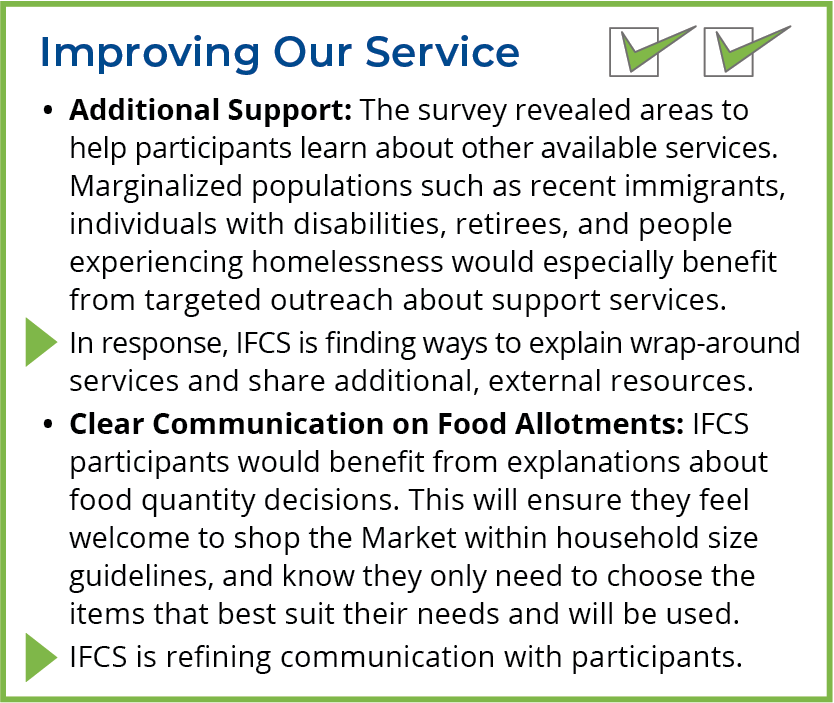 Because many Market visitors are facing life-altering challenges, such as unemployment, medical issues, recent immigration, homelessness, or aging without adequate support, their needs extend beyond food assistance. The survey revealed opportunities to expand awareness of IFCS’s wraparound services and other community resources, especially for vulnerable groups. Recently, the IFCS Program Team has developed a page on the website that outlines Additional Resources and make it easy for participants to find websites and contact information for their specific area of need. This webpage is regularly updated and new resources added, so it serves as a helpful guide to those in crisis situations. The team and volunteers are also refining communication with participants around food quantities allotted (based on household size) in the market and, as they become aware of their specific needs, making a concerted effort to connect IFCS participants with other services in the community.
Because many Market visitors are facing life-altering challenges, such as unemployment, medical issues, recent immigration, homelessness, or aging without adequate support, their needs extend beyond food assistance. The survey revealed opportunities to expand awareness of IFCS’s wraparound services and other community resources, especially for vulnerable groups. Recently, the IFCS Program Team has developed a page on the website that outlines Additional Resources and make it easy for participants to find websites and contact information for their specific area of need. This webpage is regularly updated and new resources added, so it serves as a helpful guide to those in crisis situations. The team and volunteers are also refining communication with participants around food quantities allotted (based on household size) in the market and, as they become aware of their specific needs, making a concerted effort to connect IFCS participants with other services in the community.
Real Stories Revealing Real Impact
The experience we had working with the pro bono team and conducting this survey of Market shoppers was enlightening. Our overall reaction was one of gratitude as we see how the data numbers affirm that IFCS is an essential resource in the community. Food is not being wasted, and participants made it clear that fresh produce and proteins they receive at the Market @ IFCS are preferable over more processed foods.

To every participant who took time to complete the survey: thank you. Your feedback is not only heard—it’s driving real change. The Market @ IFCS is committed to meeting your needs with dignity, compassion, and care.
To our volunteers, staff, and partners: this survey was possible because of your dedication to fostering a welcoming, inclusive space for all.
And to our supporters: these results show how essential your contributions are. Together, we’re building a stronger, healthier community.
Finally, and importantly, a heartfelt thanks goes to Grace and the Analysis Group, Inc. employee Pro Bono Program. We appreciate your philanthropy and the contribution of the team providing this survey and analysis, who shared reflections of their experience at IFCS below. A very special thanks to Grace, who built the team around this survey and offered to work with IFCS beyond her allotted pro bono time as a volunteer. “Grace’s next project with IFCS will include creating automation tools for IFCS to easily analyze monthly data,” says Tara.
The research underlying “2025 IFCS Survey Takeaways” was conducted as part of the Analysis Group, Inc. employee Pro Bono Program. Results and opinions expressed therein are the work of the individual contributors to the report and do not represent any opinions or positions of Analysis Group or its clients.
Want to support the Market @ IFCS? Learn more or donate here.
Reflections from the Analysis Group Team
 Joe Bourdage, Senior Analyst
Joe Bourdage, Senior Analyst
One thing I really enjoy in my line of work is that I get to do a lot of consumer surveys. As a result, I get to spend a lot of time with the fun and challenging problem of figuring out how best to encourage survey participants to freely speak their mind and engage meaningfully with whatever topic it is that the survey is asking them about. It is well known that “intercept” surveys – where you, the researcher, walk up to someone (historically, often at a shopping mall) and say “Hey, will you fill out this survey on XYZ?” — have a hard time getting quality answers, even in the presence of a small incentive. It’s helpful to understand why. The participant, whose day is now being interrupted via QR code or clipboard, may be tired, or busy, or minding children, or clearly on their way to something else they need to do. Who can blame them when, to be polite, they start filling out the survey anyway, but start to lose patience once they see there’s a second page?
In this survey among shoppers at the Market @ IFCS, it was clear reviewing the responses that participants were more than willing to offer their time and reflections throughout the survey—in four languages, no less—and it is notable that IFCS provided a setting where the vast majority of participants were willing to disclose their and their family’s needs, adverse life circumstances, and honest feedback about their experiences at the Market. Ultimately, the goal of any good survey is to find a way to connect with the “target population,” or the people whose opinions the survey is meant to represent, and draw those opinions out. It was a pleasure to work with IFCS staff on this effort and to see that bar for a survey that resonates with its intended audience be met in real time.
 Paul Hinton, Senior Analyst
Paul Hinton, Senior Analyst
Working with the IFCS staff to better understand the needs of people who visit the Market was a wonderful experience. It was apparent from working with the IFCS staff that they care deeply about improving the lives of members in their community, and through this survey, it is clear that they want to give visitors the best possible experience at the Market. The fact that, in one month, over 500 people took the time out of their day to provide feedback (much of which was overwhelmingly positive) about their experiences at the Market is a testament to the IFCS staff’s hard work making the Market accessible for all.
 Rachel Brown, Analyst
Rachel Brown, Analyst
In analyzing the survey response data, I was struck by the volume of participants who took the time to express their gratitude and appreciation for the care and respect that IFCS staff and volunteers show them. Often, marginalized or low-income individuals do not have the opportunity to be active agents of change in aid or other similar programs. I was excited to work with an organization committed to both encouraging participant feedback and ideas for improvement, and striving to implement these comments.
 Grace Maley, Senior Analyst
Grace Maley, Senior Analyst
It was very rewarding to apply my skills in service of an organization within my own community, contributing to their mission and supporting meaningful, local impact. Throughout the project, it was clear how deeply IFCS cares about the people they serve—they were genuinely invested in understanding visitors’ perspectives and identifying ways to improve the Market. This commitment came through clearly in the survey responses, where participants consistently expressed appreciation for the dedication and care shown by IFCS staff and volunteers.

